-
What We Do
- WHERE WE WORK
-
About Us
 Welcome Message from Carol Jenkins
Welcome Message from Carol JenkinsFor more than 90 years, World Learning has equipped individuals and institutions to address the world’s most pressing problems. We believe that, working together with our partners, we can change this world for the better.
On my travels, I’ve had the opportunity to meet with many of those who have joined us in this mission. In Baghdad, we’ve trained more than 2,300 Iraqi youth who are already giving back at home. In London, our partners in the TAAP Initiative strongly believe that we are all responsible to practice inclusion. And in Vermont, our Experiment in International Living and School for International Training participants prove every day that they have the tools and the determination to change the world.
Please join us in our pursuit of a more peaceful and just world.
- Get Involved
Media Center > Story
In Pakistan, World Learning is Improving Literacy and Creating New Opportunities for Teachers
April 2, 2019
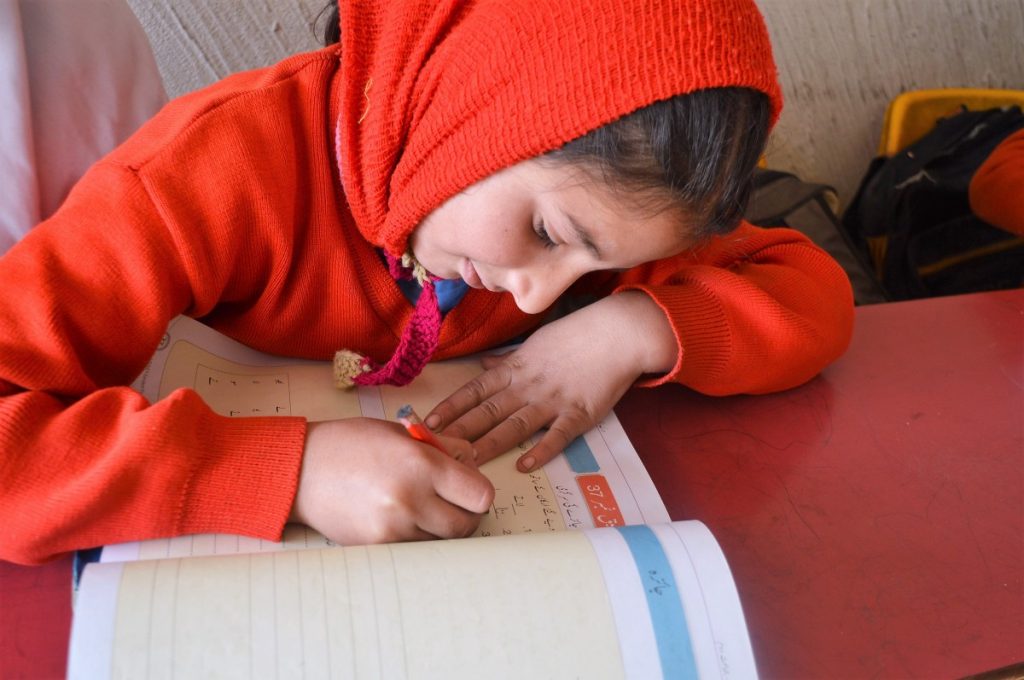
Taighoon Nissa used to teach her students how to read in Urdu, Pakistan’s national language, through a cramming approach.
But the primary school teacher in the city of Skardu has since discovered a more practical method to teach reading. She now uses techniques like clapping the syllables of a word, games that involve segmenting words into letters, and more. These techniques improve reading fluency and ultimately reading comprehension.
It has made a difference; Nissa’s students are now more confident and stronger communicators. She credits that transformation to the trainings she received through the Pakistan Reading Project.
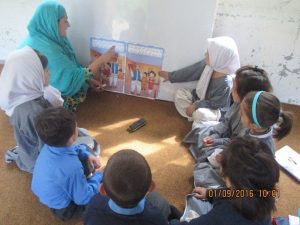 “I knew what to teach but after face-to-face trainings and Teacher Inquiry Group meetings with PRP, I am trained on how to teach,” she says.
“I knew what to teach but after face-to-face trainings and Teacher Inquiry Group meetings with PRP, I am trained on how to teach,” she says.
Funded by the U.S. Agency for International Development (USAID), PRP aims to improve the reading skills of 1.3 million children in grades 1 and 2 across the country by developing the skills of reading teachers and establishing a culture of reading. World Learning, in partnership with a consortium of international and local partners led by the International Rescue Committee, implements the program in Pakistan’s Gilgit-Baltistan and Azad Jammu Kashmir territories.
World Learning has trained nearly 4,859 teachers at 3,160 public schools since PRP launched in 2013. Based in experiential learning and inclusion, two hallmarks of the World Learning approach, these trainings encourage teachers to shift from lecture-based learning to hands-on activities, role play, and other exercises that immerse students in their education. Beyond giving students more confidence in their reading, the training has led to progressively — and significantly — better exam results.
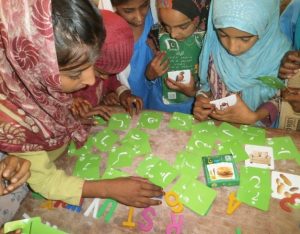 Girls Middle School Pakora in Gilgit-Baltistan, for example, faced serious challenges in teaching students how to read in Urdu. In the 2013–14 school year, only four of 15 students in grade 1 passed their annual exams. Likewise, in grade 2, only five of 19 students passed.
Girls Middle School Pakora in Gilgit-Baltistan, for example, faced serious challenges in teaching students how to read in Urdu. In the 2013–14 school year, only four of 15 students in grade 1 passed their annual exams. Likewise, in grade 2, only five of 19 students passed.
After taking part in PRP trainings, teachers like Bibi Harira and Bibi Mubashira started to work together to engage their students using the new methods.
Now students’ scores are higher than ever. In 2016, 15 out of 16 students passed the annual grade 1 reading exam, while 17 out of 22 students passed in grade 2. The following year, 17 students passed the grade 1 exam and 16 of 17 passed the grade 2 exam. Ten students achieved A and A+ results.
Teachers, too, have unlocked new career opportunities after participating in PRP trainings. Harira and Mubashira — having achieved the best results in Urdu in their school — have now been assigned to teach Urdu to students in grades 1 to 6.
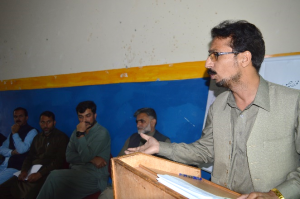 “It is very important that our teachers are professional and skillful,” says Qazi Abdul Jalil Jalili, the District Education Officer-Male in the Hattian district of Azad Jammu Kashmir.
“It is very important that our teachers are professional and skillful,” says Qazi Abdul Jalil Jalili, the District Education Officer-Male in the Hattian district of Azad Jammu Kashmir.
Jalili is taking steps to make sure that all teachers in his district gain the skills that have boosted the careers of Harira and Mubashira.
Until recently, Jalili was the headmaster of the Government Boys High School Sharian and participated in PRP as a mentor. He was very active in the program, particularly the Teacher Inquiry Group meetings that brought teachers together to share their experiences in the field, learn from each other, and gain the confidence to implement PRP activities in their classrooms.
Jalili was so impressed by the experience that, upon being named to his new position in January 2018, he asked the PRP team to provide technical support for including Urdu reading assessments in his district’s annual exams. He also requested the team’s help in replicating the PRP model in schools that were not included in the program.
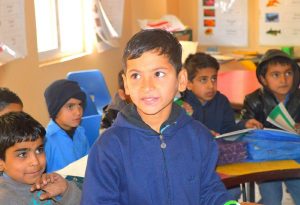 “We need to extend these skills and techniques across the district,” he says. “I feel responsible to make all possible efforts to improve the reading skills of children in the schools of my district.”
“We need to extend these skills and techniques across the district,” he says. “I feel responsible to make all possible efforts to improve the reading skills of children in the schools of my district.”
So far, an additional 64 teachers have taken part in two-day in-person trainings at four locations. These sessions were led by PRP-trained mentors, while project staff members were also available to provide technical support.
Jalili says this kind of cooperation between the district’s education department and the Pakistan Reading Project benefits the local government agency. Not only will it have a long-term impact on the quality of teaching and learning in his schools, but he says it will also increase public trust in the education department.
“We can only win the trust of parents by providing quality education in our schools,” he says. “This training is a good step in this direction.”





